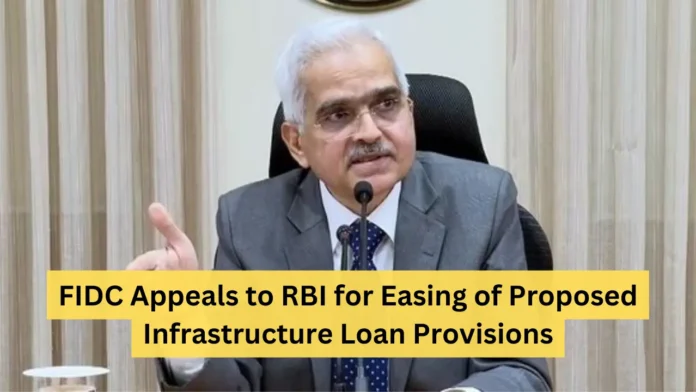In a significant move, the Finance Industry Development Council (FIDC) has called on the Reserve Bank of India (RBI) to reconsider its draft guidelines on infrastructure provisioning. These guidelines, which aim to tighten the regulations around provisioning for infrastructure loans, have raised concerns among industry stakeholders about their potential impact on financing and economic growth. Here’s a closer look at the situation and what it could mean for the infrastructure sector and broader economy.
Understanding the Draft Guidelines
RBI’s Draft Guidelines:
The Reserve Bank of India has proposed new guidelines aimed at tightening the rules around provisioning for loans in the infrastructure sector. These guidelines are designed to ensure that financial institutions maintain adequate reserves to cover potential losses from infrastructure projects.
Key Provisions of the Guidelines:
- Stricter Reserve Requirements: The guidelines propose higher reserve requirements for banks and financial institutions against loans made to infrastructure projects.
- Risk Assessment and Monitoring: Enhanced measures for risk assessment and continuous monitoring of infrastructure loans are emphasized to ensure early identification and management of potential defaults.
- Reporting and Compliance: Financial institutions are required to adhere to more rigorous reporting standards to maintain transparency and compliance with the provisioning norms.
FIDC’s Concerns
Potential Impact on Financing:
The FIDC, representing non-banking financial companies (NBFCs) involved in infrastructure financing, has expressed concerns that the new guidelines could lead to tighter liquidity and reduced availability of funds for infrastructure projects.
Arguments Presented by FIDC:
- Restrictive Provisions: FIDC argues that the higher reserve requirements and stringent monitoring could make it more challenging for NBFCs to finance infrastructure projects, which are often long-term and capital-intensive.
- Economic Growth Implications: Infrastructure development is crucial for economic growth, and restrictive provisioning norms could slow down project execution and overall economic development.
- Need for Flexibility: The council emphasizes the need for more flexible guidelines that balance risk management with the practicalities of financing large-scale infrastructure projects.
The Significance of Infrastructure Provisioning
Why Infrastructure Provisioning Matters:
Provisioning for infrastructure loans is crucial because it ensures that financial institutions are prepared to absorb potential losses from infrastructure projects, which can be complex and risky. Proper provisioning helps maintain the stability and health of the financial system.
Challenges in Infrastructure Financing:
- Long Gestation Periods: Infrastructure projects often have long development and operational timelines, requiring sustained financing over many years.
- High Capital Requirements: These projects typically involve significant capital investments, making them susceptible to changes in financial and economic conditions.
- Risk Management: Effective risk management practices are essential to handle the uncertainties and potential financial losses associated with infrastructure financing.
FIDC’s Recommendations to RBI
Relaxation of Guidelines:
The FIDC has urged the RBI to consider relaxing certain provisions of the draft guidelines to ensure that they do not unduly hinder the availability of financing for infrastructure projects.
Proposed Adjustments:
- Lower Reserve Requirements: FIDC suggests that the reserve requirements be calibrated to more realistic levels that reflect the actual risk profile of infrastructure projects.
- Phased Implementation: The council recommends a phased implementation of the guidelines to give financial institutions sufficient time to adapt to the new requirements.
- Sector-Specific Provisions: Consideration of sector-specific dynamics and the unique challenges faced by different types of infrastructure projects could help tailor the guidelines more effectively.
Broader Implications
Impact on the Infrastructure Sector:
If the draft guidelines are implemented without modification, they could lead to tighter financing conditions for infrastructure projects, potentially slowing down development in this critical sector.
Economic Growth Considerations:
Infrastructure is a key driver of economic growth and development. Adequate and flexible financing is essential to support ongoing and future infrastructure projects, which are vital for the country’s overall economic health.
Stakeholder Response:
The response from various stakeholders, including banks, NBFCs, and project developers, will be crucial in shaping the final form of the guidelines. Their feedback will help the RBI strike a balance between maintaining financial stability and supporting economic growth.
Quick Review:
Q1.What are the RBI’s draft guidelines on infrastructure provisioning?
Ans. The guidelines propose stricter reserve requirements and enhanced monitoring for loans to infrastructure projects, aimed at ensuring financial institutions maintain sufficient reserves to cover potential losses.
Q2.Why is the FIDC concerned about these guidelines?
Ans. FIDC believes the guidelines could restrict liquidity and reduce the availability of funds for infrastructure projects, potentially slowing down economic growth.
Q3.What recommendations has the FIDC made to the RBI?
Ans. FIDC has suggested lower reserve requirements, phased implementation of the guidelines, and sector-specific adjustments to better reflect the realities of infrastructure financing.

